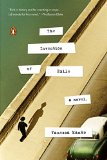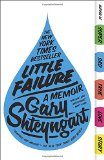Summary | Excerpt | Reading Guide | Reviews | Beyond the book | Read-Alikes | Genres & Themes | Author Bio

Critics' Opinion:
Readers' Opinion:
First Published:
Jun 2014, 336 pages
Paperback:
Jan 2015, 352 pages
 Book Reviewed by:
Book Reviewed by:
Alta Ifland
Buy This Book
Boris Fishman's A Replacement Life is proof that summarizing a novel is an unjust way of describing it. The publisher's description of the novel as the story of "a failed journalist asked to do the unthinkable: forge Holocaust-restitution claims for old Russian Jews" may give the impression that the novel is about the Holocaust, when, in fact, it is a very entertaining, witty story about Russian and Soviet immigrants living in Brooklyn.
The protagonist, Slava Gelman, who, like Fishman, came to the States as a child, has one foot in the old world of his parents and grandparents, and one in the new world, which is symbolized by Century, a prestigious New York magazine where he works. Fishman's characters – Slava and his relatives, as well as their neighbors and friends – are vivid and persuasive. They also display a disregard for the law, something common to those who have lived under communism. (I myself grew up in Eastern Europe.) Thus, toward the end of the novel, a taxi driver from the former Soviet empire, gives Slava a tip about how to make money fraudulently. Slava refuses, but the fraud is subtly integrated by the author into the larger Soviet immigrant narrative of misappropriation. The most powerful character of this narrative is Slava's grandfather, who, not coincidentally, is also the most morally ambiguous.
The idea for A Replacement Life came to Fishman in the early 1990s when he was helping his grandmother fill out her claim for material restitution from Germany. She was being asked to narrate "what the subject did from 1939 to 1945" without being obliged to provide any proof. Verifying her story – or any of these kinds of stories – was quasi-impossible, as the Germans had destroyed all of the evidence, and the Soviets refused to show what they had in their possession. Fishman realized that it would be very easy to forge these claims. In his novel, the grandmother dies just days before she and her husband receive the letter from the German government, but the grandfather, who spent the war hiding in Uzbekistan, asks his grandson to write a fake letter on his behalf. A survivor in his own way – though not like his wife, who had been an inmate of the Minsk ghetto in Belarus – he has his own claim to suffering, but he is not eligible for material restitution from Germany. This is the crux of the novel's moral questioning, which culminates in a discussion between Slava and Otto Barber, the slightly repulsive but highly picturesque German official from the Conference on Material Claims against Germany. This conversation and the numerous dialogues between Slava and his grandfather are masterpieces. Fishman writes in the tradition of other Jewish American novelists, such as Roth, Bellow and Malamud, with whom he's been compared, but the natural quality of his dialogue also brings to mind John O'Hara's New York stories.
A Replacement Life is full of big moral questions, but more than that, it is a novel about becoming a writer. Slava is only a journalist without a byline at Century, but he wants to be a famous writer. It is this desire that leads him to agree to write restitution letters for his family and acquaintances. Through writing these letters, Slava channels the voice of his dead grandmother, who never told her story as a Holocaust survivor. He invents episodes that he imagines were part of her life, but he transfers them to other people. Thus, he replaces the lost years of her life, and in doing so, he performs the very essence of a writer's task: to create "replacement lives." The difference between lies and truth, and facts and fiction is at the center of this novel: "If you wanted to write a good story, the facts had to become a story's instruments. You couldn't write without being coarse to the facts."
This theme is reflected in, not only the intimate details of Slava's family's lives, but also in a larger world-context. For example, Slava remarks upon the common lie shared by the Soviet Union and Israel: the Soviet Jews were supposedly leaving for Israel as part of a "family reunification" program, but, in reality, most of them had no family there. Some Israeli agencies concocted fake families for them, and the Soviet officials pretended to believe this. The parallel Fishman sets between the role of fiction in real life and literature becomes clear in his author's note: "The line between fact and fiction, invention and theft, is as loose as between truth and justice." Here, with wit and humor, Fishman gives us the scholarly references to many lines in his fictional novel.
Although Fishman doesn't always display the stylistic sobriety of the writers with whom he's been compared, and he gets caught, on occasion, in stylistic flourishes that take away from the novel's dramatic authenticity, A Replacement Life is a remarkable novel.
![]() This review was originally published in The BookBrowse Review in July 2014, and has been updated for the
February 2015 edition.
Click here to go to this issue.
This review was originally published in The BookBrowse Review in July 2014, and has been updated for the
February 2015 edition.
Click here to go to this issue.

If you liked A Replacement Life, try these:

by Vanessa Manko
Published 2015
Through the unforgettable character of Austin Voronkov, Manko explores the little-known period in American history of the Palmer Raids and the far-reaching implications of exile and loss.

by Gary Shteyngart
Published 2014
A memoir of an immigrant family coming to America, as told by a lifelong misfit who forged from his imagination an essential literary voice and, against all odds, a place in the world.





The Flower Sisters
by Michelle Collins Anderson
From the new Fannie Flagg of the Ozarks, a richly-woven story of family, forgiveness, and reinvention.

The House on Biscayne Bay
by Chanel Cleeton
As death stalks a gothic mansion in Miami, the lives of two women intertwine as the past and present collide.

The Funeral Cryer by Wenyan Lu
Debut novelist Wenyan Lu brings us this witty yet profound story about one woman's midlife reawakening in contemporary rural China.
Your guide toexceptional books
BookBrowse seeks out and recommends the best in contemporary fiction and nonfiction—books that not only engage and entertain but also deepen our understanding of ourselves and the world around us.